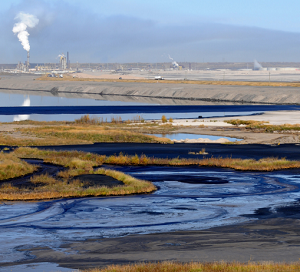
The economies of Central Asia rely heavily on activities that produce, process or use large quantities of hazardous substances. The mining waste generated by activities such as the extraction and processing of minerals and metals including mercury and uranium cannot be released into the environment and needs to be safely stored in so-called Tailings Management Facilities (TMFs). Improperly designed, handled or orphaned TMFs represent a threat that could trigger industrial accidents with transboundary effects, including soil and water contamination. These risks are exacerbated by extreme weather events and natural hazards.
To address these challenges, UNECE has since December 2017 been implementing a project in Kazakhstan to improve the safe management of TMFs and to enhance the country’s institutional and subregional coordination on this matter. Key results of the project, which comes to an end in December 2019, include:
- Establishment of a national inventory with 121 TMFs, ranked by their hazard degree
- Identification of TMFs at which an accident may have transboundary effects and which could cause accidental water pollution
- Development of a hazard map showing the above TMFsEstablishment of an interinstitutional working group on tailings safety and water management
- Improved cooperation among competent authorities at the national and regional levels and between competent authorities and operators of mine tailings facilities
- Enhanced implementation of the UNECE Industrial Accidents Convention, its Safety Guidelines and Good Practices for TMFs and a related checklist methodology
- Improved transboundary cooperation between Central Asian countries.
These project results will be presented along with other project activities at the subregional workshop on strengthening mine tailings safety in Central Asia, to be held on 20-21 November 2019 in Almaty (Kazakhstan). The workshop aims to strengthen capacities to prevent accidental water pollution from mine tailings, discuss challenges and specific needs. It will also provide an opportunity to share information and lessons learned with representatives from authorities and operators from other Central Asian countries. The meeting will bring together representatives from Kazakhstan, Tajikistan, Kyrgyzstan, Turkmenistan and Uzbekistan as well as from UNECE and other international and regional organizations, such as OECD, OSCE, UNDP and UNEP.
The subregional workshop will also provide a platform for Tajikistan to present the interim results of an ongoing similar project on improving mine tailings safety in Tajikistan, implemented by UNECE. Earlier this year, UNECE launched the project to support Tajikistan to enhance the safe management of TMFs at the national level and to improve institutional coordination. The project is running from 2019-2020 and currently at full speed of implementation. Tajikistan has already prepared a draft inventory of its TMFs and a related hazard map, raking the TMFs according to their hazard. An on-site training to apply the UNECE Safety Guidelines and Good Practices for TMFs and of a related checklist methodology is scheduled to take place in Tajikistan in mid-2020 as part of the project.
The upcoming subregional workshop will be preceded by a regional consultation for Central Asia on a draft global tailings standard (Almaty, Kazakhstan, 18-19 November 2019), co-hosted by the Global Tailings Review and the UNECE Convention on the Transboundary Effects of Industrial Accidents. The Global Tailings Review has been co-convened by the International Council on Mining and Metals (ICMM), the United Nations Environment Programme (UNEP) and the Principles for Responsible Investment (PRI) to establish an international standard on tailings facilities management. The draft Standard is consulted at the subregional level to collect feedback from different stakeholders, among others, from regulators, industry, communities affected by the tailings activities and NGOs. The draft Standard will be available in seven languages, including English and Russian, at https://globaltailingsreview.org/consultation where interested persons will also be able provide comments online.
The UNECE tailings projects assist Kazakhstan and Tajikistan in implementing the recommendations arising from the 3rd UNECE Environmental Performance Reviews (EPRs). This supports the countries’ progress towards Sustainable Development Goals and targets relating to water quality and water pollution (SDG 6), and resilient infrastructure and sustainable industry (SDG 9), and further contributes to their implementation of the Sendai Framework for Disaster Risk Reduction. Both projects are implemented by the UNECE with the financial support of the Swiss Federal Office for the Environment.

